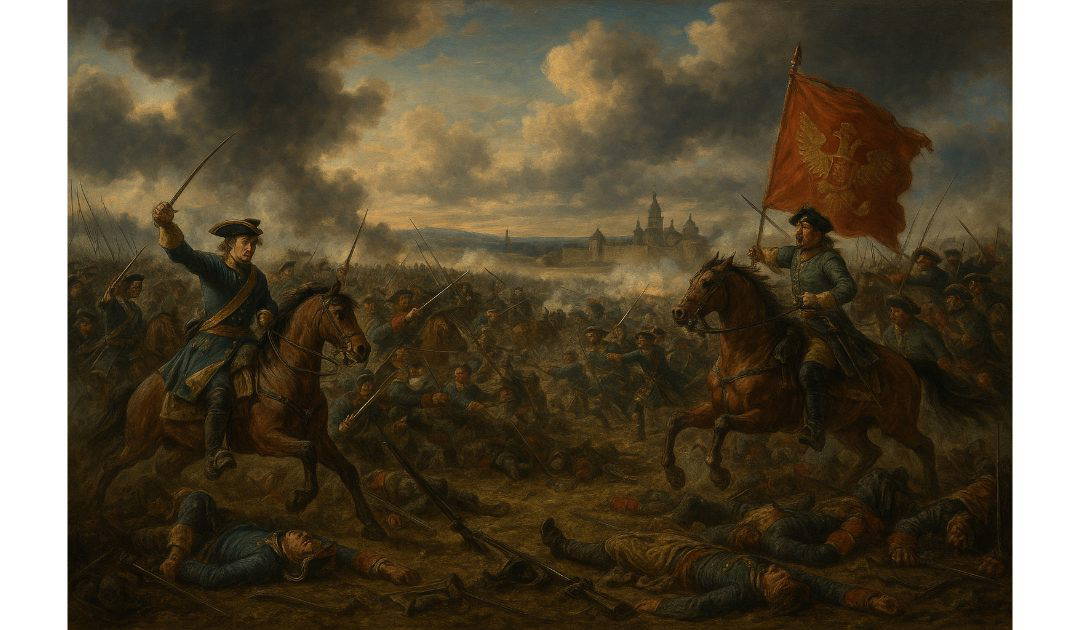The Battle of Poltava, fought on the 8th of July 1709, was a pivotal event in the Great Northern War (1700–1721), a conflict that reshaped the power dynamics of Northern Europe. The battle saw the forces of Tsar Peter I of Russia, also known as Peter the Great (father of Elizabeth, who I have previously posted about), decisively defeat the army of King Charles XII of Sweden, marking the decline of Sweden as a dominant European power and the rise of Russia as an influential empire.
Leading up to the battle, Charles XII had embarked on an ambitious campaign to invade Russia, confident in the prowess of his seasoned Swedish troops. However, the harsh Russian winter, logistical challenges, and persistent Russian resistance severely weakened his army. By the time Charles reached the fortress town of Poltava, located in modern-day Ukraine, his forces were significantly depleted and demoralised.
Peter the Great, seizing this strategic opportunity, had bolstered his own army with modernised tactics and superior artillery, reflecting the reforms he had introduced to transform Russia’s military capabilities. The Russian army, numbering around 45,000 men, vastly outnumbered the Swedish force of roughly 20,000 troops. Additionally, Charles XII had been wounded prior to the battle, limiting his ability to command effectively.
The battle commenced with an aggressive Swedish assault aimed at breaking through Russian fortifications. The Swedes initially made some headway, demonstrating their traditional discipline and fighting spirit. However, the well-entrenched Russian forces, supported by a formidable array of artillery and fortified redoubts, managed to repel the attacks. The Russian cavalry, adeptly manoeuvred by Peter himself, played a critical role in outflanking the Swedish lines.
As the battle wore on, the Swedish troops, exhausted and outnumbered, began to falter. Charles XII, unable to lead from the front due to his injury, could not rally his men effectively. The Russians launched a counter-offensive, overwhelming the Swedish formations and forcing a significant portion of their army to surrender.
The aftermath of the Battle of Poltava had far-reaching consequences. Charles XII fled south to the Ottoman Empire, marking the end of Sweden’s status as a major military power. In contrast, Russia’s victory established Peter the Great’s reputation as a formidable military leader and secured Russia’s position as a key player in European affairs.
This battle also signified a shift in the balance of power in Northern Europe. It paved the way for Russia’s expansion westward and its eventual dominance in the Baltic region. The victory at Poltava is often celebrated in Russian history as a testament to Peter the Great’s visionary leadership and the resilience of his reformed army.

